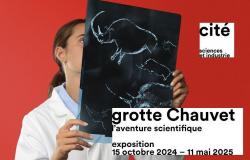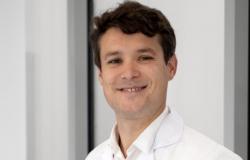The takeover of Haviland by Bernardaud was signed and made official last Friday. A transaction of which we will not know the amount, just like the turnover of the Limougeaud porcelain maker. In porcelain, secrecy is luxury, but Michel Bernardaud nevertheless agreed to explain the challenges of such an operation.
1. A desire and an opportunity
“It’s true that in the past, I had the opportunity several times to buy Haviland, but it didn’t happen and the opportunity presented itself. As we are a local player, the solution is “is imposed”, admits the president of the Bernardaud company. And to recognize that he had been in discussions for some time with La Financière Saint-Germain, owner of Haviland. The time of maturation. “We are in a period where business is rather favorable in our sector after difficult times and, as Bernardaud is in full expansion, we need to increase our industrial strength. And we can now allow Haviland to benefit from our network.”
2. An equal
“We are forecasting a very strong slowdown and a complex economic outlook for 2025. Despite everything, we are betting on a rapid rebound. This investment is a risk-taking for a company which remains family-owned and happy to be so, but in a context that is little trouble in France and with the State which has become a normative and administrative monster…” In its viewfinder?? The ban in France on making decorations “with pretty blue colors for the sake of consumer health”. “It’s grotesque because no one has ever died eating from plates,” he annoys, listing his 25 meetings at Bercy and his meetings with three prime ministers. “It’s a handicap in my development,” he believes. A development that he is pursuing in other ways, notably with this acquisition of Haviland.
3. Know-how and skills
“We don’t need Haviland know-how but it is interesting,” he admits. “We are recovering an industrial tool and skills.” The two companies do not weigh the same in terms of workforce, Haviland having 90 employees and Bernardaud 650, including 250 on the Oradour-sur-Glane site and the rest in Limoges, on the Aixe-sur logistics platform. -Vienna and all over the world. “With our workforce, we are not dependent but it is good to add skills. Because a porcelain factory is like a chain “linked” with guilds of craftsmen, and we have needs everywhere…” And even if the age pyramid has been reversed in the company, with many young people having been trained, Bernardaud cannot escape the recruitment problem.
4. Two distinct identities
The two houses are old and emblematic of Limougeaud heritage. “My wish is that the two brands live separately, insists Michel Bernardaud. On the commercial level, the sales forces are different?; the same goes for creation. There is no cannibalization?!” he reassures. Its goal to keep all Haviland customers and find others. “For now, we are going to get to know and immerse ourselves in the brand. Our focus is to expand the collections by relying on the archives and heritage. Haviland has a very rich heritage which must be highlighted .” To do this, Bernardaud plans an industrial investment to be quantified.
5. Continued export development
Export represents the same proportion of sales at Haviland and Bernardaud, which generates 75% of its turnover there, including 25% in the United States. But “we don’t put all our eggs in one basket,” admits Michel Bernardaud. The brand is present in Europe, the Middle East, Latin America, Japan, Korea, China… “For us, it’s varied and we don’t just offer tableware,” he explains. For them, it has been complicated over the last twenty years in Europe with bankruptcy filings. We have gone through the drops because we have developed art publishing, high-end hotels and restaurants, and technical ceramics. perfumery and cosmetics and we have renewed our collection. We are a bit of a unique case.” And precisely to continue this international development, the Bernardaud house will open new points of sale in 2025: a second in New York, one in Miami, one in Shanghai, one in Beijing, and perhaps a second in Tokyo. Not to mention a third store in Paris.
6. A local establishment that suffers from isolation
“Bernardaud claims to be very attached to his city. We support a lot of events and we also organize a lot of them, recalls Michel Bernardaud. But being isolated is a real issue. It’s very embarrassing because it doesn’t make it easier commercial development,” he laments. However, there is no question of transferring production elsewhere. The question, however, arises for the decision-making centers and the Bernardaud Institute. While the Center for Sports Economics and Law (CDES) will leave the Burgy Hotel in the coming months, the porcelain maker is now hesitant to renovate the building adjoining the factory. “The Institute could be in Paris,” he wonders. A project that will have to be studied. As for the purchase of other factories, it is not on the agenda. “We are not actively researching and we have enough to do,” he smiles.





